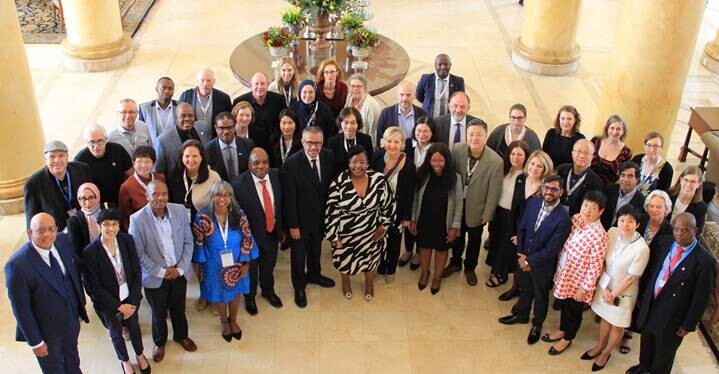Mobile Menu
- Education
- Faculty
- Research
- News & Events
- Divisions
- Equity, Diversity & Inclusion
- About Us

Faculty members in our Department are playing an important leadership role in the Healthy Life Trajectories Initiative (HeLTI), a 10-year international collaboration aiming to address the increasing burden of non-communicable diseases (NCDs) around the world.
Jointly funded by the Canadian Institutes of Health Research, India’s Department of Biotechnology, South Africa’s Medical Research Council, and China’s National Natural Science Foundation, the HeLTI project is intended to generate evidence that will inform national policy to improve health and prevent NCDs.
HeLTI was launched with the implementation of harmonized studies in four countries looking to test if an integrated continuum of care intervention — beginning pre-conception and continuing through pregnancy, infancy, and childhood — could reduce childhood adiposity, impact maternal health, and ultimately improve child development.
Two basic scientists in our Department have key roles in the project. Dr. Stephen Matthews, a professor and former chair of the Department of Physiology holding a cross-appointment in our Department, co-leads the HeLTI study in India. Dr. Stephen Lye, a professor of obstetrics and gynaecology who also serves as interim director of research at Sinai Health's Lunenfeld-Tanenbaum Research Institute, co-leads the project in South Africa.
Recently, Lye, Matthews, and the leadership team of the consortium convened in Cape Town, South Africa to meet with the program founders and provide project progress updates. They were joined at the meeting by South African Minister of Health Dr. Joe Phaahla, as well as Dr. Tedros Adhanom Ghebreyesus, director-general of the World Health Organization.
“This was the first time that the consortium leadership have met with the funding council in person since the pandemic,” Matthews said. “It was fantastic that Dr. Tedros and Dr. Phaahla were able to come and learn more about the project and its progress from the project leads.”
To that end, the team has recently made rapid progress with recruitment for the studies — which had previously been slowed by the pandemic — and pre-conception interventions have begun that are harmonized around maternal-infant health, nutrition, hygiene, and mental health.
Each study is aiming to recruit around 5,000-6,000 women, with interventions set to continue through pregnancy, infancy, and all the way through the first five years of life.
Ultimately, the goal of these studies is to find insights that could be quickly translated into policy that has a positive impact on the health and lives of families around the world.
“The studies have been very much designed with an idea that we will be able to expand and essentially take what we’re learning and move it into public policy very quickly,” Matthews said.
“Many of our centres are already deeply engaged with public health and local government. Right now, we’re building the knowledge translation pathways so that as the data emerges, it can be rapidly rolled out to make any improvements that are possible.”
